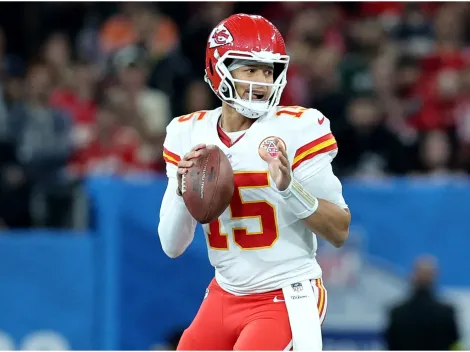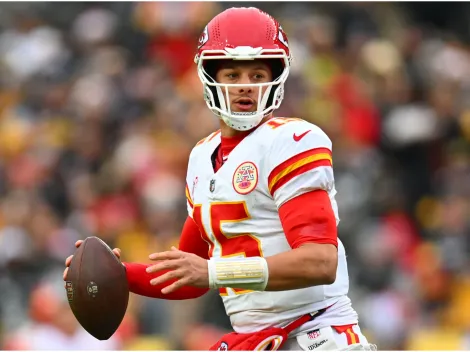John Madden(RIP, 1936-2021) ended hisNFL coaching careerin 1978. It took him just 10 seasons to become an all-time great of this sport. During this time, he won a Superbowl with his beloved Oakland Raidersand achieved plenty ofrecords, included the highest career winpercentage by Head Coach inhistory (according to ESPN Stats& Info). Buthis longest legacy was, curiously, outside the field, for exampleinthe video game industry with Madden NFL.
In 1988 the EA Sports companylaunchedone ofthe first video game titles about sports in history. Theconsoles that held thisnovelty were the Commodores 64 and 128, home computer models. The riskyundertaking needed a powerfulpublic personalityto lead the marketing campaign. There was no other like The Coach.So, it was settled that thename of thefootball videogamewasJohn Madden Football.
Despite a difficult starting, the video gameis now established as one of themost successfulseries ever with more than 250 million copies sold around the world andincomes over the 4 billion dollars. Undoubtedly, Madden did it again: he put one of his creations in the hall of fame.
Factsof Madden NFL’s videogame
When John Madden Football was launchedEA Sports couldn’t obtain the license to use the official name of NFL teams and players, so the ones who appeared on the game werejust approaches to the real ones.
The legendary coachwas offered to buyunlimited stocksfor theinitial public offeringof EA but he decided not to accept. Years after, Madden regretted his action due to the game’s success:”it was the dumbest thing I ever did in my life“.
In the 90’s decade, there was a fierce competitor of this video game: an American video game developer, BlueSky Software, launched Joe Montana’s Football. The game transformed into a small series of 4 titles and then disappeared.

Joe Montana tried luck on video games. (Peter Brouillet/Getty Images)
It was in1993 when the game got a real upgrade: the license and permission of the NFL were finally granted, so there were no more fake player, team and stadiums names. Also, thetitle passed from its original name to the one it holds currently,Madden NFL, and was adapted to be used on hand-held consoles, such asGame Boy.
In the year of 1998, EA Sportsadded theFranchise Modeto the game, one of the players all-time favorites. This option allows the player to control the totality of a team: contracts, draft picks, coaches hiring or removal, and strategy during the matches.
Since 2004, an official simulation of the Superbowl is held through a Madden NFL match. From a total of 17 Superbowl gamessimulated, 11 of them were predicted right. However, of the last 5 clashes predicted, only 2 were correct.
In 2009, John Madden decided to end his participation as a commentary voice in the game.The Coachhad to record multiple phrases and lines so that the game could simulate a realcoverage just as it were broadcasted live.
There was a trend known as the Madden Curse that involved theNFL players that appeared on the video game cover: usually, they suffered serious injuries or dramatically dropped their level after starringthe game. Stars like Marshall Faulk, Michael Vick,Donovan Mcnabb, Brett Favre, Troy Polamalu among others, were the victims.

Michael Vick and Troy Polamalu suffered the Madden Curse. (Kevin C. Cox/Getty Images)
Players that have starred Madden NFL’s cover so far
| Year | Protagonist |
| 1988 to 2000 | John Madden |
| 2001 | Eddie George, Tennessee Titans, Running back |
| 2002 | Daunte Culpepper, Minnesota Vikings, Quarterback |
| 2003 | Marshall Faulk, St. Louis Rams, Running back |
| 2004 | Michael Vick, Atlanta Falcons, Quarterback |
| 2005 | Ray Lewis, Baltimore Ravens, Linebacker |
| 2006 | Donovan McNabb, Philadelphia Eagles, Quarterback |
| 2007 | Shaun Alexander, Seattle Seahawks, Running back |
| 2008 | Vince Young, Tennessee Titans, Quarterback |
| 2009 | Brett Favre, Green Bay Packers, Quarterback |
| 2010 | Larry Fitzgerald, Arizona Cardinals, Wide receiver &Troy Polamalu, Pittsburgh Steelers, Safety |
| 2011 | Drew Brees, New Orleans Saints, Quarterback |
| 2012 | Peyton Hillis, Cleveland Browns, Running back |
| 2013 | Calvin Johnson, Detroit Lions, Wide receiver |
| 2014 (Madden NFL 25) |
Barry Sanders, Detroit Lions, Running back &Adrian Peterson, Minnesota Vikings, Running back |
| 2015 | Richard Sherman, Seattle Seahawks, Cornerback |
| 2016 | Odell Beckham Jr., New York Giants, Wide receiver |
| 2017 | Rob Gronkowski, New England Patriots, Tight end |
| 2018 | Tom Brady, New England Patriots, Quarterback |
| 2019 | Antonio Brown, Pittsburgh Steelers, Wide receiver |
| 2020 | Patrick Mahomes, Kansas City Chiefs, Quarterback |
| 2021 | Lamar Jackson, Baltimore Ravens, Quarterback |
| 2022 |
Patrick Mahomes, Kansas City Chiefs, Quarterback & Tom Brady, Tampa Bay Buccaneers, Quarterback |

Patrick Mahomes and Tom Brady, the only ones who have starred twice the Madden NFL cover. (Maddie Meyer/Getty Images)




